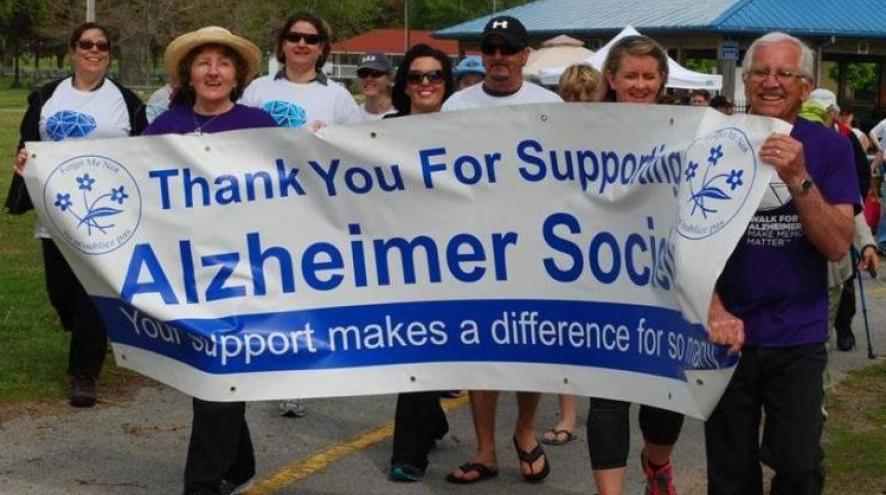What does the Alzheimer Society do?

Local Alzheimer Societies help people in their region—both those living with dementia and their care partners—manage all aspects of living with Alzheimer’s or a related dementia.
Support Services
When people are first diagnosed with dementia we try to make contact as soon as possible. Most frequently, one of our Client Support Coordinators (CSC) will make a home visit to the person living with dementia and their family to speak with them and answer questions.
That CSC stays in touch with that client through their journey and can be contacted with any questions or concerns going forward. Our CSC’s help clients to navigate the health care system, access appropriate services within the Alzheimer Society and the community, and generally help clients solve the various practical issues that arise when a person has dementia.
Education
Our educational workshops help clients understand the disease, recognize behavioural and communications changes, and assign those changes to the disease itself and not the person. That helps reduce stress and conflict.
Education also helps people to plan. Without education and planning it’s common for people to find themselves having to make difficult decisions during a crisis situation (a fall, or when someone gets lost). A plan can help prevent a crisis or reduce stress if one occurs.
Finally, our educational workshops help care partners manage the practical issues that come with caring—clothing, meals, hygiene—and equips them with tools to better connect with the people they’re caring for.
Recreational Programming
It’s been shown that people living with dementia have better outcomes if they continue to be social and physically active. But it’s difficult to get out into the community, exercise, and maintain friendships after a diagnosis of dementia.
The Alzheimer Society offers a solution to this problem by providing social and recreational programs tailored to the needs of people living with dementia. By joining these programs people get to socialize with others who understand what it’s like to live with dementia.
This peer support is coupled with exercise that improves mobility and in turn, independence. Attending these programs leads to an increase in quality of life for both people living with dementia and their care partners.
Fundraising
To support the functioning of these programs we ask donors in our region to contribute in various ways. We hold events like the annual Walk for Alzheimer’s and promote ourselves in our Monthly-Giving and Holiday Campaigns.
We also seek out larger gifts from individuals and corporations and write grant proposals for funding from a variety of foundations and government programs.
The Alzheimer Society supports people through all stages in their dementia journey, but in order to do so we need people to know that we exist and understand that we’re here to help. If you know someone with Alzheimer’s, dementia, or an undiagnosed memory problem, please help them to get in touch with our office.
If you feel like our services our valuable for the people in your community and want to help, please consider becoming a monthly donor at donatealz.ca.
